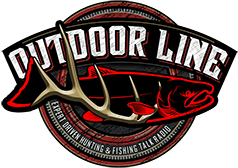Are You Sure That You Are Covered On The Water? 1
Marine Insurance
The most effective way to minimize risk and avoid a loss on the water is to adequately maintain your boat and operate it in a safe manner. Murphy’s Law knows no bounds, however, so be prepared and have the proper insurance.
Insurance companies provide coverage for insured property (boat) based on the Actual Cash Value, Agreed Value, or Replacement Cost. Knowing which of the three your policy is issued against when you insure your boat will save you hundreds, if not thousands, of dollars in the event of a loss.
Total Loss
Actual Cash Value is determined by the insurance provider, who will use the lower of your insured value or Actual Cash Value to settle a loss. If the insured value is $30,000 and total loss occurs, your provider may determine the ACV to be no more than $20,000 based on their pricing guides. Even though you’ve an insured value of $30,000, you’ll only receive $20,000 in this instance. Wood boat owners know this formula all too well!
Agreed Value is determined by both the insured and the insurance company. The parties will agree on the value of the boat in advance of the policy being issued, before a loss occurs. In the event of a total loss, the "agreed value" is used to settle the loss. For other than newly purchased boats this means is preferred over Actual Cash Value.
Replacement Cost is for new boats and is usually only in effect for the first three years. In the event of a total loss, the boat is replaced at cost. If a boat insured for $30,000 has a replacement cost of $35,000 within a year after purchase of the boat/policy, the insurance company would pay the $35,000 to replace the boat. As the boat ages, Replacement Cost policies will change over to Agreed Value or Actual Cash Value.
Partial Loss
Just as important, partial losses make up the bulk of marine claims. Knowing how your policy will respond in the event of a loss, could make or break a successful boating season.
Insurance companies settle a partial loss in one of two ways. A damaged or broken part is replaced without depreciation (Replacement Cost) or with depreciation (Actual Cash Value). Most insurance companies will use a schedule to depreciate items. The older the part is, the higher the depreciation will be.
Replacement Cost is preferred over the depreciation schedules for a partial loss. A part costing $5,000 insured on a Replacement Cost basis with a $500 deductible for the first three years. After one year the part needs to be replaced, the insurance company will pay $5,000, less $500 deductible, or $4500 for the part. Using a 20% depreciation schedule, the insurance company would pay $5,000, less $500 deductible, less $1,000 depreciation, or $3500 for the same part.
Insurance companies will also offer a combination of the two, specifically identify parts for depreciation. Sails, canvas, outboards and other items with a shorter run life will be singled out and subject to depreciation on a Replacement Cost policy. Once the boat ages, the policy will settle all partial losses on an Actual Cash Value basis.
Personal Property Loss
Clothing, personal effects, fishing gear and sporting goods belonging to the insured are covered under most policies, both while onboard and being loaded or unloaded. Know your insured value in your policy! Items purchased after your policy is put in effect and that are kept on the boat may not be covered under your policy. Fishing gear in particular is often under represented, with premium gear often far exceeding policy limits in the event of a loss. If you’ve added gear, contact your agent and request an assessment of your policy to insure expensive items covered.
Liability, Medical, Towing, Un-insured Boaters, Longshoremen’s, Navigation……….
In addition to covering property (boat & personal), marine policies offer protection and reduce your risks in a number of ways. Knowing your policy is paramount to minimizing your exposure and maximizing your protection from the many hazards that exists in the marine environment. In Washington alone, more than 3,000 injuries and 20 deaths per year are attributed to boating accidents.
Give Griffin Maclean a call at 425-879-2244 and ask for Patrick. Patrick can also be reached via email at Patrick@griffinmaclean.com or on the web at www.griffinmaclean.com . He will review your policy and identify areas where you may be at risk. Often, the lowest cost policy isn’t the solution. Griffin Maclean is an agency that knows your boat and the waters you navigate. We will identify areas of high risk and look for alternatives to protect you and your family by putting the right policy in play.


I'll tell you what, after finding out that my last insurance "agent" informed me that I was covered when in fact I was not, I learned to check and double check my marine coverage! Griffin MacLean made it easy and affordable! Thanks!